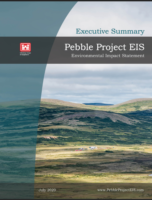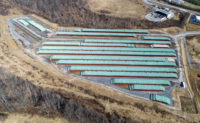Corps of Engineers Pulls Trump-Era Georgia, Arizona Mine Permits

Two proposed large mining operations in Georgia and Arizona have lost U.S. Army Corps of Engineers dredge-and-fill permits granted during the Trump administration—the Biden administration has reversed those approvals and restored rules on covering federally protected wetlands.
The Trump-era rule had eliminated the requirement for developers to consult with affected indigenous tribes and had narrowed areas under federal jurisdiction based on the Waters of the U.S. (WOTUS) designation.
“The Army’s Civil Works program has a long history of consultation with Tribal Nations on its projects, rules, and regulatory permit actions, and the Army Civil Works program is committed to maintaining and enhancing its record on consultation,” Michael Connor, assistant secretary of the Army for civil works said in a letter to the Corps commanding general.
Alabama-based Twin Pines Minerals proposed a $300-million titanium and zirconium mine about three miles from the 438,000-acre Okefenokee National Wildlife Refuge, the largest black water swamp in North America. The Georgia Dept. of Natural Resources said in a statement that 556 acres of the swamp were excluded from federal regulation in 2020, so no federal permit was required. The state agency now will await a new federal determination, it said.
The Muscogee (Creek) Nation had requested consultation on the proposed Twin Pines mining operation because its ancestral land includes Okefenokee.
Twin Pines plans to mine 582 acres near the swamp. “Twin Pines is committed to seeing this mining project through, and we are evaluating all options available to getting it kicked off as soon as possible,” Steve Ingle, president of Twin Pines Minerals, said in a statement to ENR.
Toronto based Hudbay Mining surrendered its Clean Water Act permit to the Corps in April for the estimated $1.9-billion Rosemont Copper mine near Tucson, the company said.
A federal appeals court ruled May 12 that the U.S. Forest Service relied on incorrect assumptions in its environmental impact statement for the project, located on federal land in addition to private land.
The Tohono O’odham Nation, the Pascua Yaqui Tribe, and the Hopi Tribe had asked for consultation on the project. The company continues to develop the open pit copper mine on adjacent private property, the company said.
Both companies can reapply to the Corps for new jurisdictional determinations, but the Alabama mine may be delayed by a mandate for a new environmental review that could take up to three years, said one local report in Georgia.




